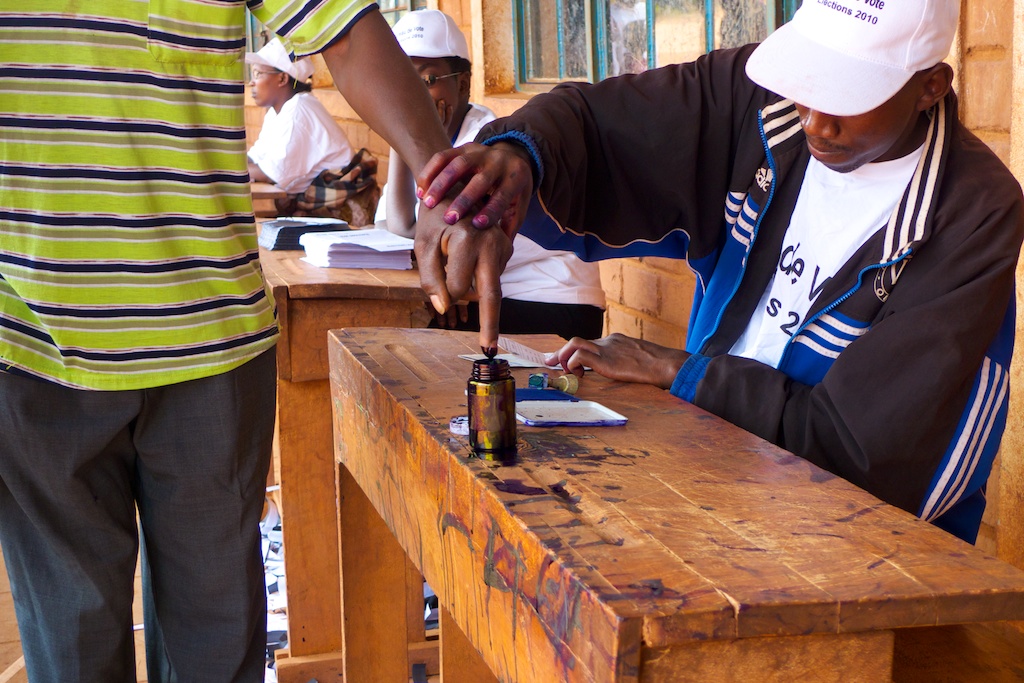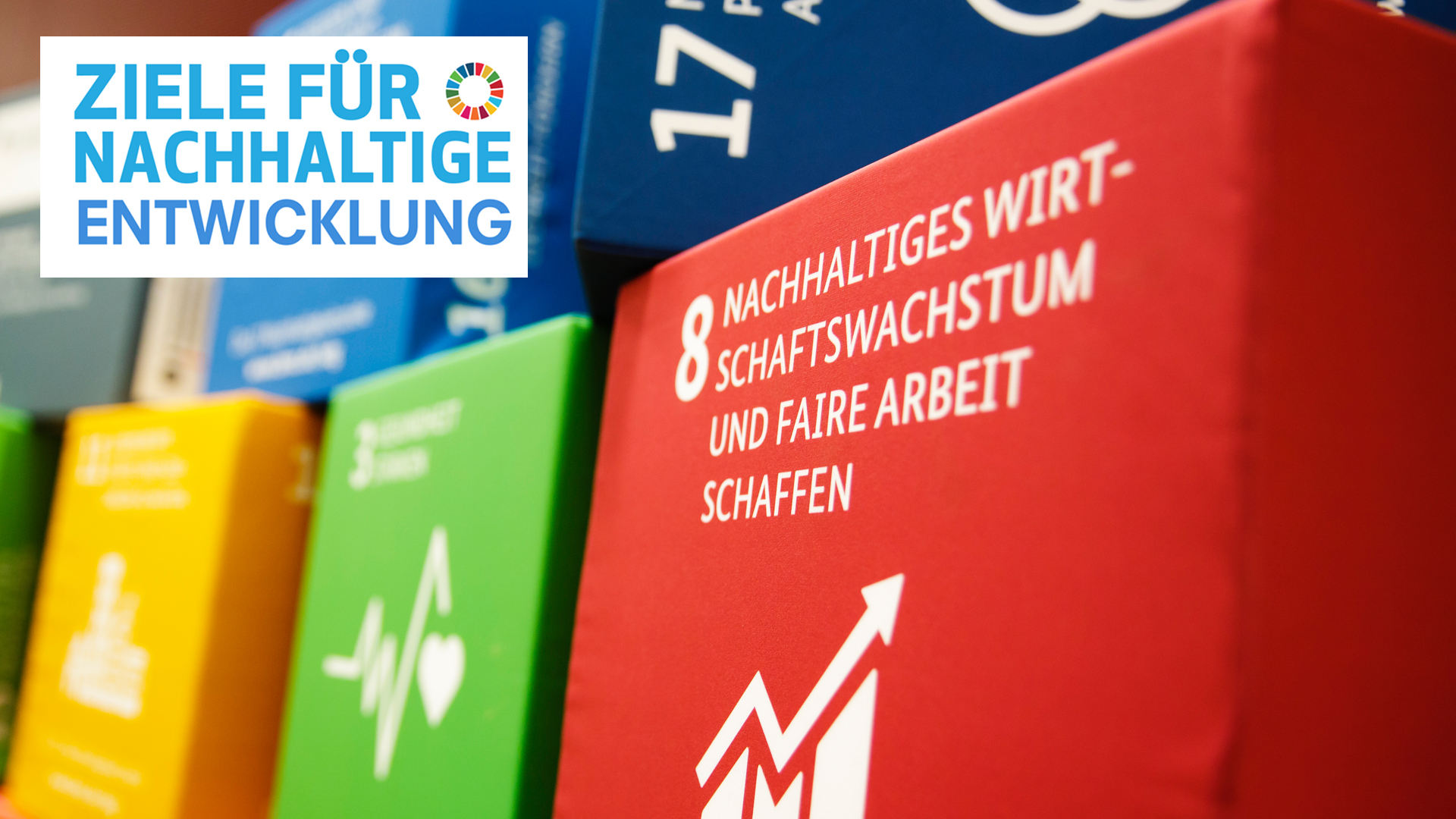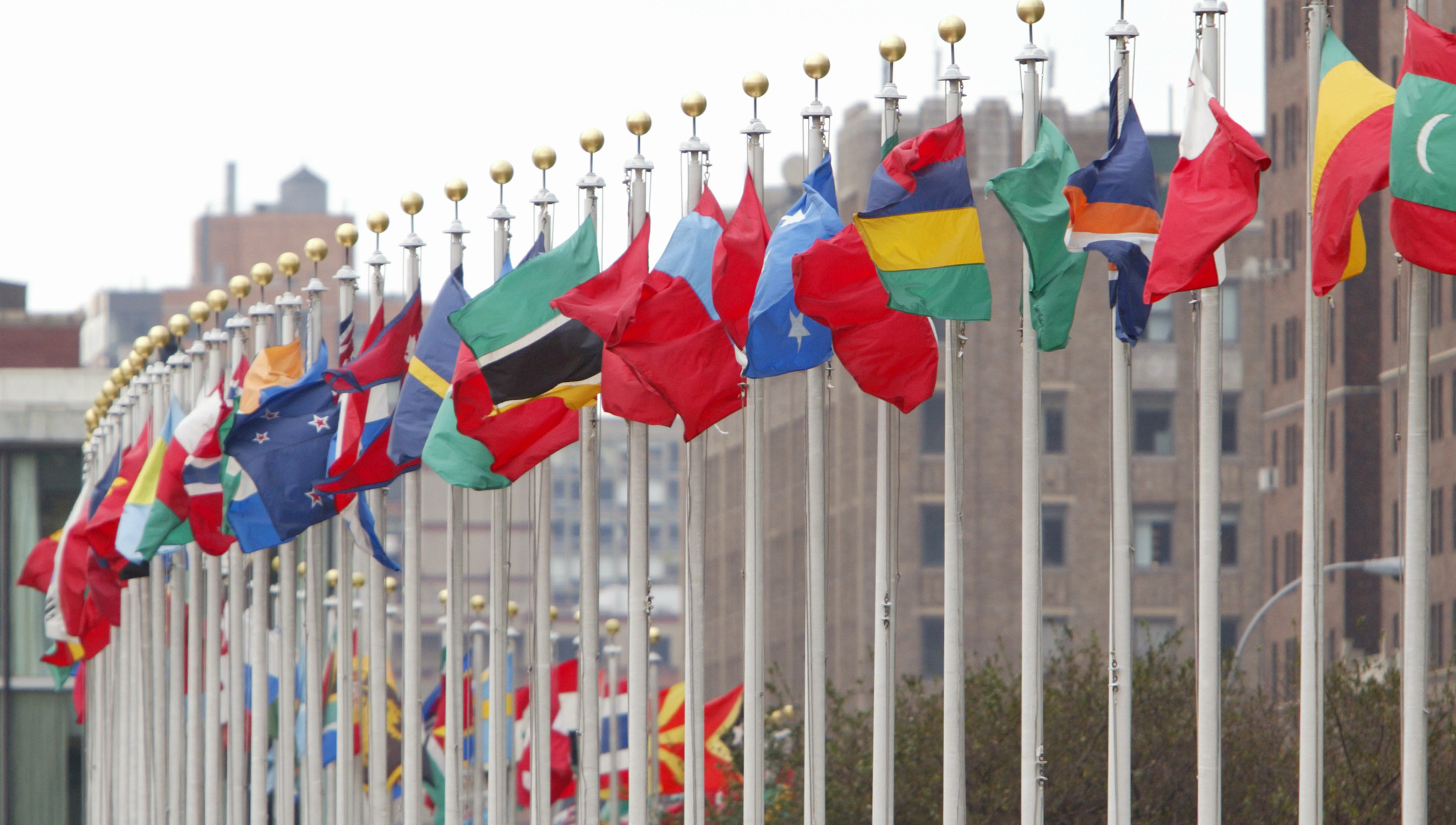Background and definitions Good governance – an enabling environment for development
A voter in Burundi has his finger marked with ink.
As a result, “good governance” became synonymous with the concept of a development-enabling environment. In particular, such an environment includes democracy, political participation and service-oriented government institutions, rule of law, the respect, protection and fulfilment of all human rights, a functioning system of public finance and absence of corruption.
We envisage a world (...) in which democracy, good governance and the rule of law, as well as an enabling environment at the national and international levels, are essential for sustainable development, including sustained and inclusive economic growth, social development, environmental protection and the eradication of poverty and hunger.
Definition of good governance
The term “good governance” is often used rather loosely. However, good governance goes beyond just how the state is run. It includes responsible actions by non-governmental players, and establishing constructive relations between the state and non-governmental actors. This involves aspects such as democratic participation, civil society engagement, and the rule of law.
The term “governance” by itself, too, is often used quite broadly. It refers to the way in which policies are framed, decisions are made and resources are used within a state or within organisations or companies. In other words, governance is about the rules that apply to governmental and non-governmental players.
In German development policy, the main defining aspects of good governance are the following:
- Governmental institutions perform their duties in an inclusive, efficient and transparent manner at all levels and are publicly accountable for their actions.
- In their actions, governmental institutions are guided by democratic and human rights principles and standards; they involve the entire population and thus enable people to influence decisions taken by the government and to determine their own future, regardless of gender identity, sexual orientation, age, disabilities, migration status, ethnicity, religion or belief, or any other characteristics.
- All citizens are provided with the necessary public goods and social services and enjoy equal access, including in the digital sphere.
- All decisions are based on sustainability principles.
Since the mid-1990s, good governance has been a key concept in development strategies. Germany supports its development cooperation partners' efforts to put in place the right political conditions for successful social, environmental and economic development in line with the 2030 Agenda for Sustainable Development.
However, good governance is not only a goal of effective development cooperation, it is also a precondition. Whether and how Germany engages in development cooperation with a given country depends on the political situation in that country. A stronger focus of government actors on reforms and development, and greater stability of partner country institutions mean a better environment for development policy to make a targeted impact and benefit local people.
As at: 06/08/2025




